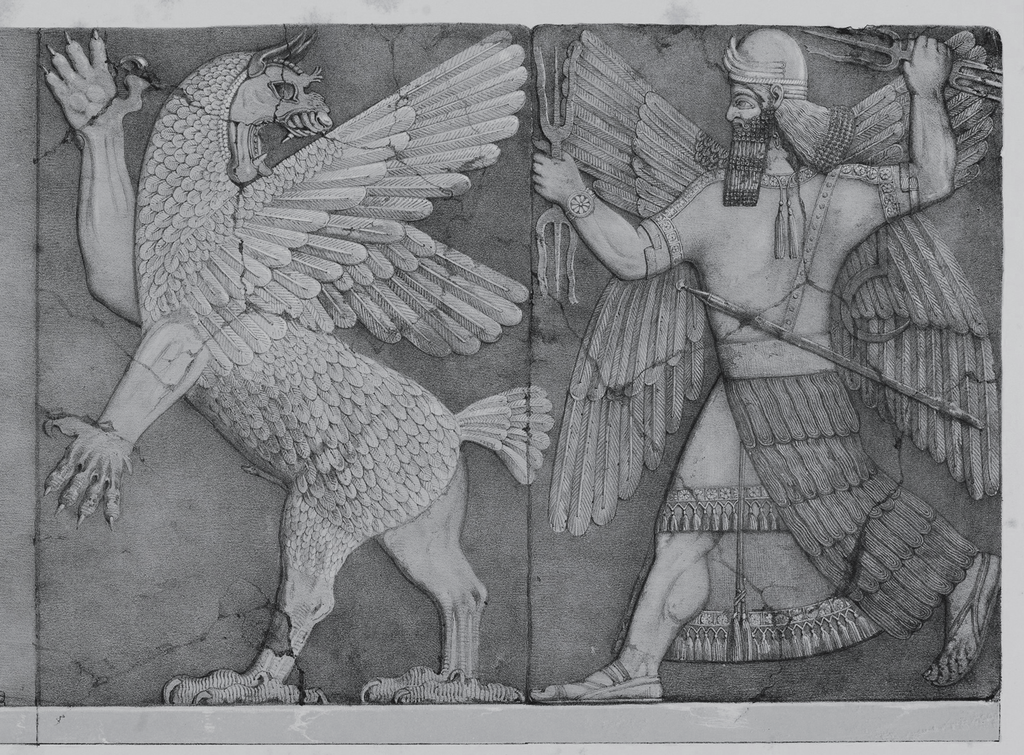 Dietrich Bonhoeffer's Creation and Fall; Temptation: Two Biblical Studies is short and refreshing commentary on Genesis 1-3. Karl Barth's majestic commentary on these same chapters in the Church Dogmatics III/1 was a complete paradigm shift for how I understood the Doctrine of Creation. However, Barth is far too technical for my friends and family to digest, and this is the beauty of Bonhoeffer's short 144pg explanation of the prologue to Genesis, because it is accessibly to any reader and communicates the very same truths as Barth's masterpiece!
Dietrich Bonhoeffer's Creation and Fall; Temptation: Two Biblical Studies is short and refreshing commentary on Genesis 1-3. Karl Barth's majestic commentary on these same chapters in the Church Dogmatics III/1 was a complete paradigm shift for how I understood the Doctrine of Creation. However, Barth is far too technical for my friends and family to digest, and this is the beauty of Bonhoeffer's short 144pg explanation of the prologue to Genesis, because it is accessibly to any reader and communicates the very same truths as Barth's masterpiece!
One of the most contentious debates in Evangelicalism today is over the doctrine of Creation! And one of the key points of contention is how to understand the 'days of creation'. Should we understand the 7 days of evenings and mornings as literal 24hrs and nothing but literal 24 hours, in the most static and ridged way? Or should we understand them as merely figurative?
Dietrich Bonhoeffer, in the following quote from Creation and Fall, explains how we ought to understand the Days of Creation.
THE DAY
Genesis 1.4b-5 And God separated the light from the darkness. God called the light Day, and the darkness he called Night. And there was evening and there was morning, one day.
The day is the first finished work of God. In the beginning God created the day. The day bears all other things, and the world lives amid the changes of the day. The day possesses its own being, form and power. It is not the rotation of the earth around the sun-which can be understood physically or the calculable change of light and darkness; the day is something exceeding all this, something determining the essence of our world and of our existence. If it were not such an unsuitable thing to say in this context, we might say that it is what is called a mythological quantity. The gods of day and night who, according to pagan belief, inspire and animate the world rule here totally dethroned. Nevertheless the world remains God's first creature, both wondrous and powerful in the hand of God.
For us the creatureliness and miraculousness of the day has completely disappeared. We have deprived the day of its power. We no longer allow ourselves to be determined by the day. We count and compute it, we do not allow the day to give to us. Thus we do not live it. Today less than ever for technology is a campaign against the day. The Bible too speaks of the day in the same calculating way as we speak of it but the Bible knows too that the day is not this calculable day of the earth's rotation - that it is the great rhythm, the natural dialectic of creation. In the morning the unformed becomes form and then by evening sinks back into formless ness. The bright polarity of light dissolves into unity with the darkness. Living sound grows silent in the stillness of the night. An expectant awakening in light follows sleep. There are times (which go far beyond the physical day) of awakening and slumbering in nature, in history, and in nations. All this is what the Bible means when it speaks of the creation of the day, of the day without man, which bears everything, including the lot of man. The rhythm-repose and movement in one-which gives and takes and gives again and takes again, which thus eternally points towards God's giving and taking, to God's freedom on the other side of repose and movement - that rhythm is the day. When the Bible speaks of six days of creation it may well have been thinking of the day of morning and evening, but in any case it does not mean this day in a computable sense; it thinks of it in terms of the power of the day which first makes the physical day what it really is, the natural dialectic of creation. The physical problem does not at all belong to the discussion in which the "day" is being considered. It does not disparage biblical thought, whether the creation occurred in rhythms of millions of years or single days, and we have no occasion to protest the latter or to doubt the former. But the question as such does not concern us. To the extent that his word is the word of man the biblical author was limited by his time and his knowledge, and we dispute this as little as the fact that through this word only God himself is speaking to us of his creation. The days God created are the rhythms in which the creation rests.
Dietrich Bonhoeffer, Creation and Fall; Temptation: Two Biblical Studies, pg28-29
Related: creation, Days of Creation, Dietrich Bonhoeffer, Doctrine of Creation, Enuma Elish, Karl Barth



Leave a comment